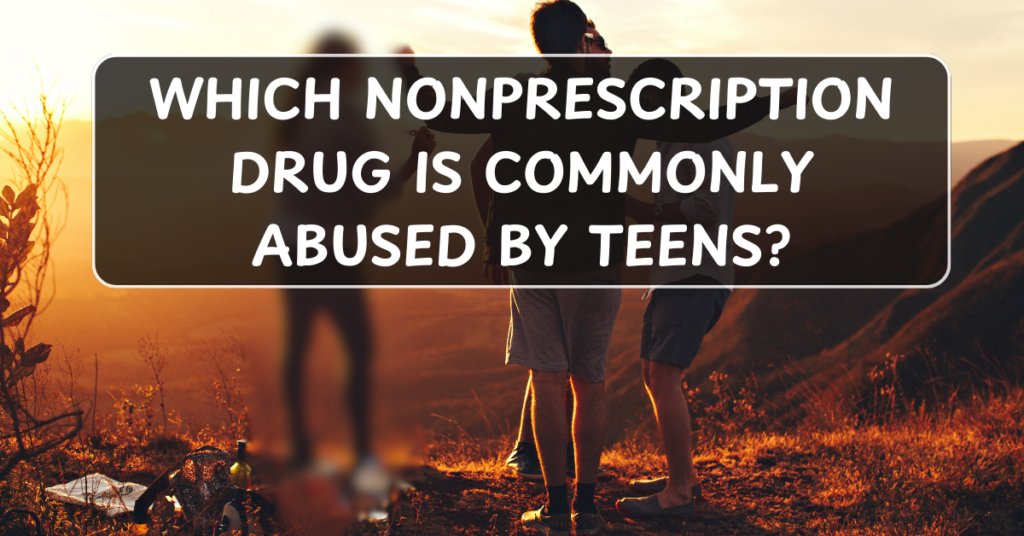
One of the most commonly abused nonprescription drugs by teens is cough syrup containing dextromethorphan (DXM). DXM is a common ingredient in over-the-counter (OTC) cough and cold medications, and when taken in large quantities, it can cause hallucinations, euphoria, and dissociation. Teens may abuse DXM for its psychoactive effects, which can be similar to those produced by illicit substances.
Other Commonly Abused Nonprescription Drugs by Teens:
- Pain Relievers (Acetaminophen, Ibuprofen, and Aspirin):
- Some teens may abuse OTC pain relievers to get high or to relieve emotional pain. Taking large amounts of acetaminophen (found in products like Tylenol) can lead to liver damage, while abuse of ibuprofen or aspirin can cause stomach ulcers and other complications.
- Antihistamines (Diphenhydramine):
- Drugs like Benadryl (which contains diphenhydramine) are often misused for their sedative and hallucinogenic effects. When taken in large doses, diphenhydramine can cause extreme drowsiness, confusion, and visual hallucinations.
- Pseudoephedrine:
- This ingredient, commonly found in decongestants, is sometimes abused because it can be used to manufacture methamphetamine. While the act of abusing pseudoephedrine itself is not common for recreational purposes, it still poses a significant risk due to its potential to be misused in the production of illegal drugs.
- Energy Drinks and Stimulants:
- Some teens abuse energy drinks or other stimulant-containing products (like caffeine pills) for the boost of energy or euphoria. Excessive caffeine intake can lead to anxiety, irregular heartbeats, and other health problems.
Why Are These Drugs Abused?
Teens may turn to nonprescription drugs for various reasons:
- Curiosity: The desire to experiment with substances that are easy to access.
- Peer Pressure: Influence from friends or social groups to try substances.
- Stress or Emotional Relief: To cope with school pressures, anxiety, depression, or other emotional challenges.
- Availability: Nonprescription drugs are often easier to obtain than illicit drugs, as they are available over the counter without a prescription.
Risks of Nonprescription Drug Abuse
Abusing nonprescription drugs can have serious consequences, including:
- Physical harm: Overdose, organ damage, and long-term health problems.
- Addiction: Misuse of certain substances can lead to physical or psychological dependence.
- Impaired judgment: These drugs can alter perception, motor skills, and decision-making abilities, which can lead to accidents or risky behaviors.
- Legal trouble: In many places, the misuse of OTC drugs for non-medical purposes is illegal.
What Can Be Done to Prevent Abuse?
To prevent nonprescription drug abuse among teens, it’s important to:
- Educate teens about the risks and consequences of drug abuse.
- Monitor the use and availability of OTC medications in the home.
- Encourage healthy coping mechanisms for stress or emotional struggles, such as talking to a counselor or engaging in physical activities.
- Foster open communication between parents and teens, creating a supportive environment where concerns can be discussed.
Conclusion
Cough syrup containing dextromethorphan (DXM) is one of the most commonly abused nonprescription drugs by teens, but other OTC drugs such as pain relievers, antihistamines, and energy stimulants are also misused. The abuse of these drugs can lead to serious health risks, and it’s important to address the issue through education, open communication, and supervision.


